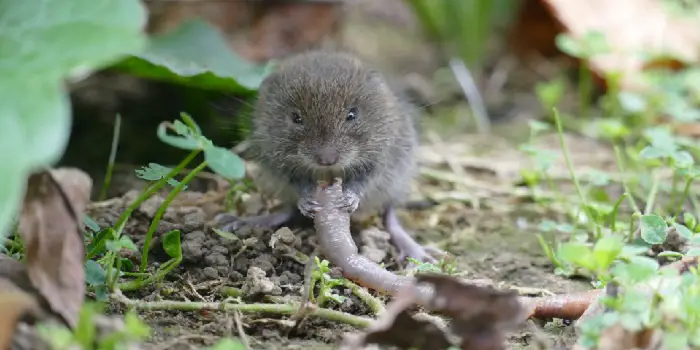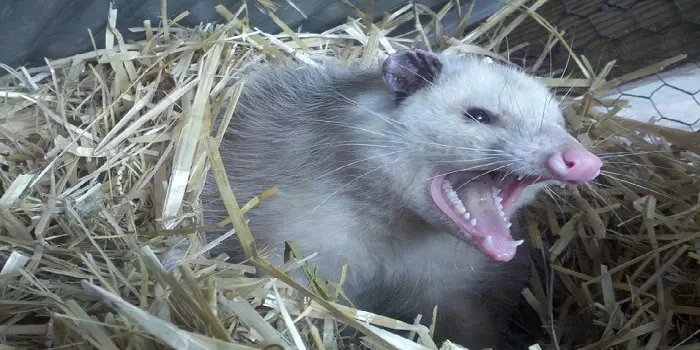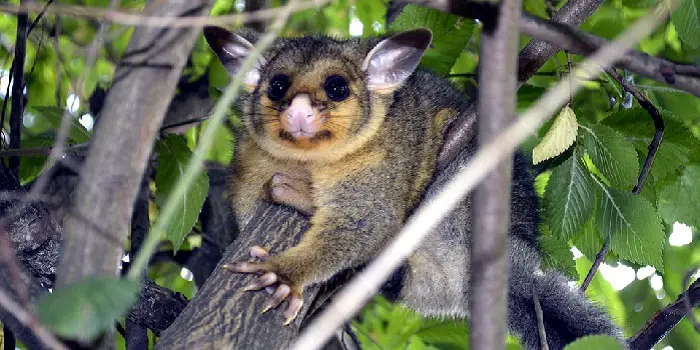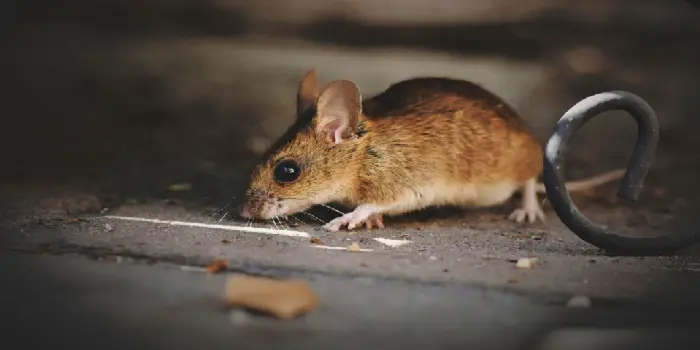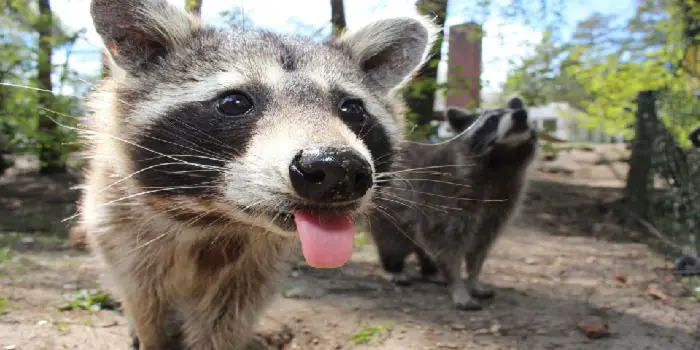
Raccoons are nocturnal creatures with unique facial markings which give them the appearance of masked bandits.
They are smart, adaptable, laborious, and opportunistic mammals capable of breaking through mostly all types of barriers people put to keep them off their property.
Raccoons also have the remarkable skill of climbing, allowing them to be on the ground floor in one second and reach out to the roof in the next.
Because of the mess they create, the potential destruction they are capable of causing, and the prospective risk of spreading disease, raccoons aren’t welcomed by any homeowner.
For the sake of their removal and to make your task easier, I have listed down some of the tips for you that can help in scaring off these critters efficiently.
What will Scare Off Raccoons?
Raccoons are among the very strong and intelligent animals.
With time they are becoming more and more urbanized and are losing the fear of people around them.
This also means that they perfectly know how to defend themselves in times of danger.
With that said, raccoons are the type of animals that are not scared of much.
But there are still a few things that they are afraid of.
And knowing about what are the things that scare raccoons away can help you in keeping them off your roof, attic, pets, and yourself.
So, what scares raccoons and what not? Let’s check them…
Raccoons are scared of:
- A large fearful dog
- Lots of floodlights on the property
- Hot pepper spray such as a bear mace
- A water hose of a motion sensor sprinkler
- A loud noise like a gunshot or from firecracker
- A person with a long stick, broom, or clanging pots/pans
- The smell of ammonia and smoke smell like cigarettes, campfire, and chimney
Remember, there are not many predators that raccoons fear. They are only frightened when they smell bears and coyotes.
Since raccoons have an excellent sense of smell, they smell the urine of these animals from far and usually run away when terrified.
Raccoons are very smart creatures, just like humans. Unlike other pests, they are not frightened of:
- A small gentle dog or a cat
- Ultrasonic sound machines or repellents
- A small number of bright lights or flashing lights
- Odor repellents such as mothballs and wolf urine
- Traps and big steel cages – they are very smart, and they never go around them
What Attracts Raccoons to Your Home?
Well, a few things which allure raccoons to your property are food, shelter, and convenient access to both these things.
Speaking of food first… what do raccoons eat?
Do they eat your pet cats?
Well, raccoons are opportunistic, meaning they will eat everything that they get access to.
Their favorite food available in your backyard is what attracts them most.
- They have a varied diet, and they can eat anything and everything like humans, such as fish, eggs, fruits, veggies, grains, etc.
- They can prey on birds, snakes, squirrels, and frogs along with any dead animal that they can lay their hands-on
- They are also capable of eating pet food and trash. As they can climb trees, they can also eat food from bird feeders.
So, if you want to keep raccoons off your home and premises, then you need to get rid of their food source first.
Some convenient steps you can take here are:
- Try keeping your trash can and bins in locked doors like a shed or garage.
- You should also feed your pets inside your home and store their food bowls and food indoors.
Do you have a good garden with lots of fruits and vegetables?
Well, if yes, then unluckily, it also works as a magnet for raccoons and attracts them.
Even if you keep your bin locked up in your garage for six days and forget it on the 7th day, they will roll out and cause havoc till morning.
As these animals are smart and wily, they can also break inside closed and tightly sealed lids.
Hence you should choose an animal-proof bin for your garbage placed in the garage.
Just like the other pests, a good shelter is also a priority for raccoons. And since your attic is most comfortable for them, they love to reside here.
Usually, the female raccoons build nests to raise their babies in the attic.
A baby raccoon takes two months to wean off its mother’s milk.
But, during this time, the adult raccoon can get territorial, may repel, or get aggressive when trying to be thrown away from its home.
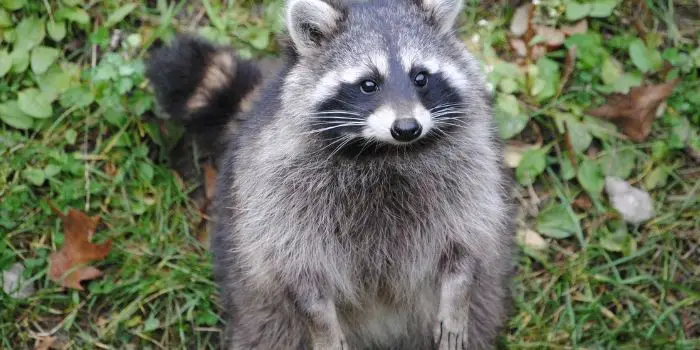
How Can They Cause the Damage at Home?
Raccoons are known to be highly active mammals and can be a complete nuisance.
Though these animals aren’t severe disease carriers or considerable property damage they still cause a good amount of trouble and irritation to the homeowners by causing significant damage to your house, attic, and garden.
- Usually, they destroy your bin and spread all the trash in search of food
- They also decimate your gardens, especially if you have fruits and veggies planted
- They may destroy a healthy lawn in search of grub worms
- Often it is seen that raccoons can kill chickens and damage nests of birds in their search for a tasty meal
- They may damage your walls, insulation, and wiring by chewing, biting, and scratching
- Chances are that their excretion may seep through the walls, insulation and contaminate your lower floors and degrade the value of your property
- Raccoons can damage your shingles and make holes in the roof while looking for their shelter
There are some severe damages reported by raccoons when they reach the chimney or attic.
These are typically the locations that prove to be den sites for them, especially if a female is looking for a habitat to give babies.
What makes their presence worse is that they are a common wildlife species known to carry rabies, and hence they prove to be a major threat to your family, including pets.
Some of them are also considered dangerous as they are known to cause leptospirosis and raccoon roundworm to people and pets via the soil contaminated with their poop.
Signs There are Raccoons Living on Your Property
Raccoons walk around your yard and complete property.
Their leg prints are somewhat the same as that of a small man’s hand.
Their foot is just 2-3 inches long, and they have sharp claws on their fingers.
As a raccoon sign, you may notice holes dug up or a big portion of grasses torn apart or dug upside down.
However, this can also be the action of some other nuisance animal.
There may also be scratching and bumping noises in your ceiling, attic, or inside the wall.
You may also get these noises on your roof and garage.
This may signify the presence of raccoons in your home as they may be trying to build their den.
Few other signs which reveal that a raccoon is present somewhere on your property or scavenging around your home for nourishment are:
- Scattered trash from bin around your yard or garage
- Noticeable scratch marks on your garbage bins or trash cans
- Garden with fruits and vegetables damaged and eaten up
Raccoons (whether small babies or adults) can be a threat to your house, health, and garden.
No matter whether you are getting signs of the presence of a raccoon outside your house or inside, it is important to take immediate action.
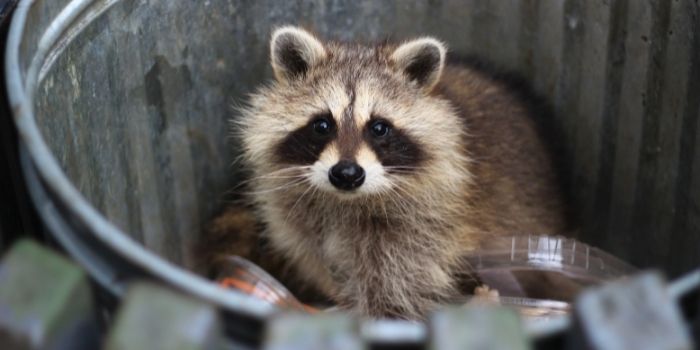
How to Get Rid of Raccoons from Your House & Roof?
It may be tough to get rid of raccoons once they are inside your barn.
These pests are territorial and would resist staying in the nest they have worked hard to construct.
If you are wondering how to eliminate them from your home, here are several proven DIY methods that homeowners try.
While some may work for you, there may be few that don’t.
The best approach to wipe out raccoons from your home includes a combination of these methods.
- Get electric fencing installed.
- Use very bright lights and noise (loud music) to repel them
- Use strong-smelling things like ammonia or vinegar to drive them away from their nests
- Keep the trees of your house trimmed so that raccoons don’t find an easy road to your roof
- Get trash cans which have clamped lids as raccoons may not be able to open them
- Keep vines and climbers short as they take the support of your house’s exterior and climb up. Raccoons can use them as a ladder.
- Bird feeders and bowls for your pets shouldn’t be left outside, especially at night, as they are a major attraction for raccoons.
- Seal all the access points to shelter and food and remove all the food sources which attract them to your property, such as compost, produce from the garden, and garbage.
Apart from these, there are a few dangerous methods, specifically when you may have to climb your attic, roof, or chimney to execute them.
Some major entrance points for these mammals are uncovered chimneys, broken vents and crevices, and holes in the attic and roof.
Any holes in these locations should immediately be blocked.
Also, it’s good to cover your chimney with metal caps or a fine wire mesh to keep raccoons away.
What Should You Do if You Get Bitten by a Raccoon?
Taking all the preventive measures minimizes the chances of getting a raccoon inside your property.
It does not guarantee that they can not find a way to get in.
If by any chance, a raccoon enters your property and you are being bitten or scratched by them, it’s important to go to the hospital immediately and get the vaccination as soon as possible.
A bit of a raccoon exposes you to the diseases like rabies, especially if you are bitten by a wild rabid animal.
Rabies from these animals not only can get transmitted through the contact of their saliva and claws but even by a small scratch.
But worry not. It is a viral disease that can be treated if you get the vaccination fast. Or else it can kill you.
Even if the animal who has bitten you is healthy, you should not take any chance.
Seek immediate medical advice and get the wounds caused due to the raccoon’s bite or scratch treated.
Here are a few tips that following which can save you from the bite of a raccoon:
- Never try to feed a raccoon on your property
- Keep them at a distance and never get close to them
- Do not ever engage with these animals – they are wild and can be very aggressive
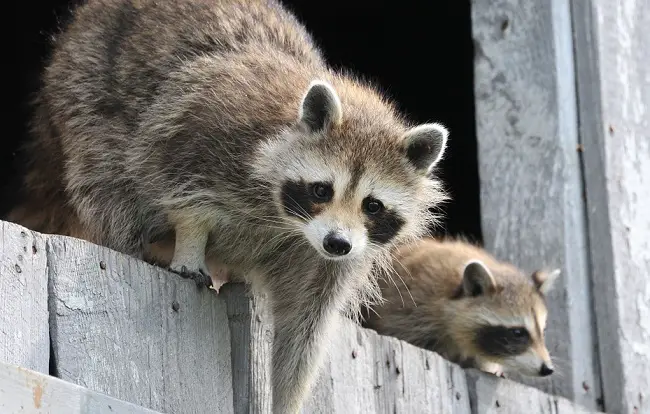
Other Related Questions:
What does raccoon poop look like?
Raccoon feces are usually dark-colored, tubular in shape with dimensions of about 2-3 inches long.
Raccoons are damaging, and they can be seen tearing up your backyard gardens while leaving their poop everywhere.
Many times, people confuse the raccoon latrine with that of a dog.
But you can easily tell between the dog’s poop and raccoon poop by looking for the presence of undigested food.
Raccoon fecal material will most often include pieces of undigested fruits or berries that can be easily noticed.
Can you trap a raccoon outdoor in a cage?
Yes, Raccoons can be trapped live in a cage if they are seen indoors or outdoors inside your property.
However, I recommend live trapping only if you have tried other methods to scare them away and have been unsuccessful.
Before you plan to trap a raccoon (either a baby or a grown-up adult), here are a few tips and precautions you need to pay heed to.
- Wear thick gardening gloves and long sleeves to avoid getting in contact with a raccoon
- Once you have trapped the animal, do not hold the cage close to your body – always hold it at arm’s length.
- Also, do not put the fingers inside the live cage, or else the disturbed raccoon in the cage may bite or scratch your skin.
How to bait a raccoon trap correctly?
Sweet foods, marshmallows, white bread, and fatty meats are considered to be the best baits for luring and trapping a raccoon.
While all these food items are good to bait and capture a raccoon inside, meat is not recommended if you are trapping it outside.
When used as bait outdoors, meat products (like chicken) can attract other animals or pets you don’t want to capture.
Remember, picking the right bait is only the first step in achieving success.
Placing the bait correctly in the trap is also crucial when you want to catch a raccoon successfully.
So, before you bait the trap, it’s essential to consider the size and type of the cage you are using.
Depending on whether you are using a one or a 2-door cage, you should be placing the bait at the end or in the middle.
Also, make sure that you encourage the animal to get fully (body and tail) into the cage so that they do not get any chance to escape.
Can you shoot a raccoon damaging your property?
While it’s legal in some states to kill raccoons, shooting them is illegal in many other places.
You should also check with the related authorities whether you need to get a license to hunt them down on your property.
If it’s allowed and you are planning to shoot the trapped raccoon, here are a few tips that you will need to follow:
- Use a pellet gun, airgun, or bb gun to shoot a raccoon
- Shoot them from a safe distance – do not get too close to them
- Practice gun safety – ensure there is no pet or any person in the firing range
- Wear safety gear and proper clothing – after you have shot the animal dead
- Dispose of the carcass safely without getting in contact with its bodily fluids – it may transfer the infection
The Conclusion
Raccoons are cute and can be amusing to watch.
But still, they are pests that can pose severe health hazards for your family.
If you have taken all the measures mentioned above and still find the raccoon appearing on your roof or an attic, you would need to call a wildlife removal professional who can trap and remove the animal.
In several cases, one of the best options to get rid of raccoons is to hire professional wildlife control experts, especially when you have a complete family residing on your property.
They will take the best measures to eradicate them from your premises without creating any mess or additional trouble.
Share the post "What Scares Off Raccoons – How to Keep Them Away?"

Welcome to ProShieldPest.com. I am Tina Jones. I have been working as a pest removal professional in Winslow, Arizona lately. At present, I love to spend my time with my family as a retiree.
Here I share all my knowledge and experiences to help people understand better how they can stop pests at their homes without actually killing them. Hopefully, the information you will find here will help in safeguarding your home! You can check more about me here.

